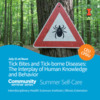Welcome to Connect. Posting content requires an account. All Land-grant university professionals are invited to create accounts, share webinars to the calendar, and access learning opportunities and subgroups made available system-wide.
All Land-grant university professionals are invited to join Connect regardless of membership in the Extension Foundation. Extension Foundation Members have access to the Impact Collaborative Subgroup and its offerings and services.
Individuals wishing to create a subgroup in Connect Extension may request one at contact-us@extension.org. Subgroups need to be focused, multi-institutional collaborations, on specific projects or programs that help Land-grant university professionals make a local impact in their communities. Subgroups are made available for both Extension Foundation member and non-member institutions.





